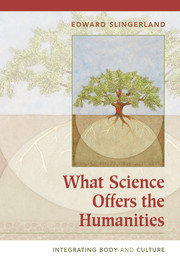Book contents
Conclusion
Published online by Cambridge University Press: 05 June 2012
Summary
I will now ask you to forget all about replicators and lumbering robots, algorithmic processes and the unfeeling universe. Discussing these issues was important in order to see how human-level reality can survive even the starkest version of physicalism as a global explanation for our universe, but there are at least a couple of reasons why physicalism will usually play no immediate role in our work.
First of all, it is entirely possible that, at some point in the future, we will find ourselves having to modify or even abandon strong physicalism. A colleague of mine, a renowned social psychologist, is currently devoting a significant portion of his lab resources to proving that human consciousness constitutes a full-blown fifth dimension of reality, a claim he intends to substantiate in part by demonstrating the reality of precognition (ESP). Although they are not yet published or widely peer reviewed, he claims to have replicated results where events that have not yet happened are exerting a priming effect on subjects: that is, the subjects are apparently showing signs of being primed by stimuli that they will see in the future. He anticipates a great deal of resistance to his theory – which, incidentally, is one reason he did not begin pursuing it until he had a secure day job – and for good reason: it goes against everything else we know about how the universe works.
- Type
- Chapter
- Information
- What Science Offers the HumanitiesIntegrating Body and Culture, pp. 297 - 312Publisher: Cambridge University PressPrint publication year: 2008



